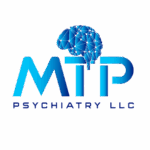preceptorship
Professional Development
Goals & Objectives of Preceptorship
Identify and initiate appropriate interventions for psychiatric illnesses in various settings
Develop skills in psychiatric history-taking, mental examination, interviewing, and symptom assessment
Create psychiatric treatment plans integrating pharmacotherapy and psychotherapy for comprehensive care
Diagnose patients using clinical history and multi-axial DSM-5 methodology for comprehensive psychiatric assessment
Understand psychiatric emergency screening, evaluation, and assessments for suicide and homicide risk
Know the major DSM-5 signs and symptoms for the major psychiatric disorders
Understand evidence-based biological treatments, including ECT and Vagal Nerve Stimulation, for psychiatric care
Develop awareness of psychotherapy’s types, indications, case formulation, and developmental issues.
Develop awareness of psychiatric practice issues: referrals, care levels, managed care, stigma, and forensics
Students should draft patient treatment plans, including further evaluation for various diagnostic possibilities
Students should write progress notes documenting significant changes in the patient’s chart.
Students recognize medico-legal issues in involuntary hospitalizations, informed consent, and confidentiality
Skill Enhancement
Outline of Rotations
Comprehensive Psychiatry Experience
Gain a comprehensive understanding of psychiatric practice through theory and hands-on experience.
Master Precise Documentation
Master core competencies like diagnostic skills, treatment planning, and patient interaction.
Effective Psychiatric Evaluation & Reporting
Learn the process of conducting thorough evaluations and presenting patient cases.
Detailed Mental Status and Exam
Understand the components of a complete mental status exam (MSE).
Master Patient Documentation
Master accurate documentation of patient information and treatment plans.
Identify Symptoms & Diagnoses
Familiarize yourself with the common symptoms and diagnostic criteria for psychiatric disorders.
Diagnosis & Treatment Planning
Develop a clear diagnosis, identify differential diagnoses, and create a treatment plan.
Publishing & Career Growth
Publish articles, write a book, improve psychiatry exam scores, and explore residency options.
Identify Psych Emergencies
Identify psychiatric emergencies and ensure appropriate responses to safeguard patients.
Explore Common Psychiatric Disorders
ADHD- all you need to know
Alcohol related disorders
Anxiety and Panic Disorders
Bipolar and related disorder
Cannabis abuse disorders

Clinical Interview/assessment
Common Psychiatric Disorders

Common psychiatric screening tests
Communicate with pts families
Cultural issues in psychiatry
Different forms of psychotherapy
ECT and other modalities
Geriatric psychiatry
Informed consent and confidentiality
Legal and ethical issues
Suicide/homicide - Prevention and more

Use and abuse Benzodiazepines

Child psychopharmacology
Cultural issues in psychiatry

Women's Psychiatric Disorders
Must know DSM 5 Changes

Opioid Addiction Recovery
Personality Traits Disorders
Post Traumatic Stress Disorder

Pregnancy and Psychotropic

Psychiatric Emergencies

PTSD
Schizophrenia & other Psychotic Disorders
Sleep disorders
Substance abuse and addiction
Prescription drug abuse
Suicide and violence-related topic


